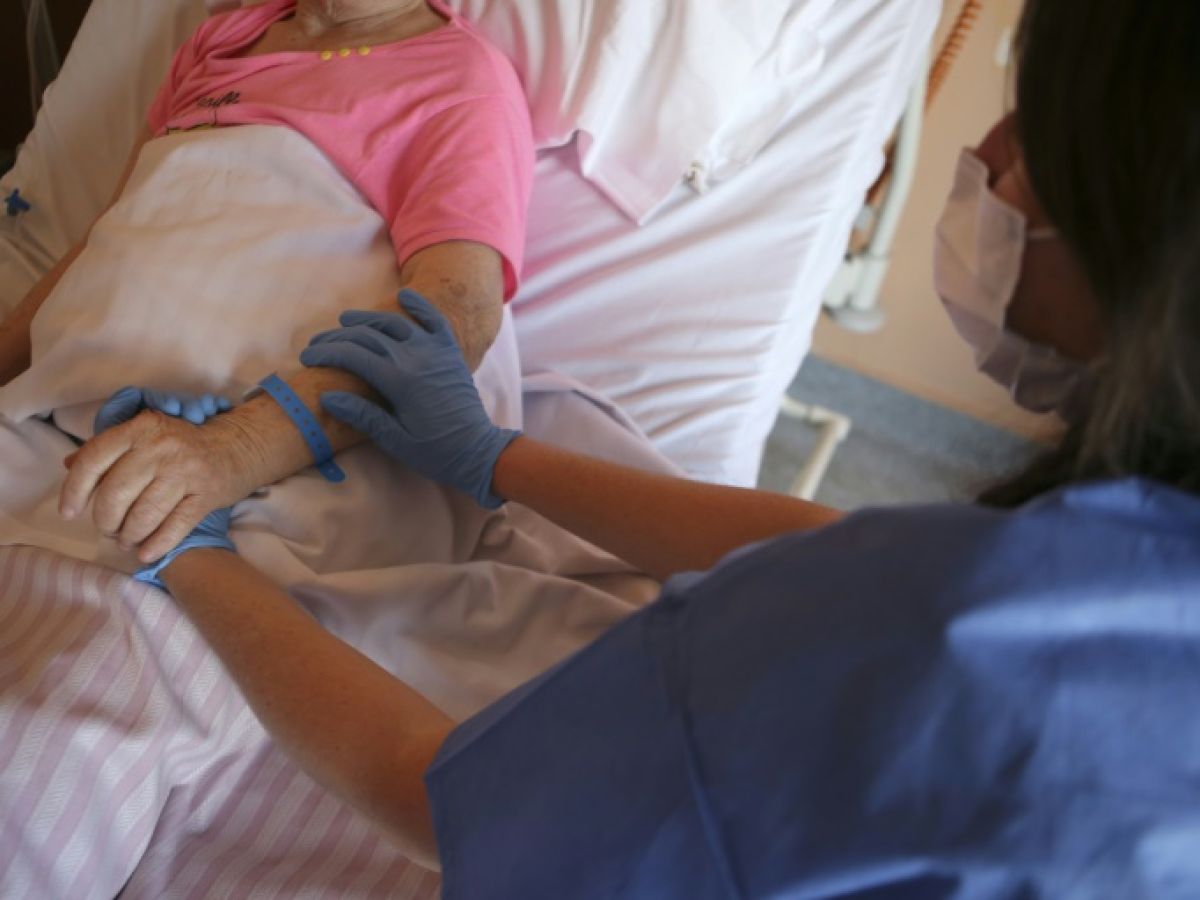"Illness does not wait": the great uncertainty surrounding the fate of the text on the end of life, put on hold by the dissolution, is causing anxiety among the French, affected by serious and incurable pathologies, who are campaigning for the subject to be brought back before the deputies quickly.
Loic Resibois, 47, who suffers from Charcot's disease and is in favour of active assistance in dying, believes he was "sacrificed" by Emmanuel Macron's decision to dissolve the National Assembly on 9 June, in the middle of examining the text.
The president's surprise decision, on the evening of the second round of the European elections, "has plunged tens of thousands of patients into despair of having a peaceful end to their lives," this resident of the Somme told AFP, who finally saw "the light at the end of the tunnel."
This "serenity" "is what Emmanuel Macron deprived us of without even having a word for us", regrets this member of the Association for the Right to Die with Dignity (ADMD).
Changing French law, which currently does not allow assisted suicide or euthanasia, was one of the head of state's campaign promises. After organizing the Citizens' Convention and months of procrastination, the bill on this highly sensitive subject was presented to the Council of Ministers in April. The start of a long parliamentary process expected to last some eighteen months, before being abruptly interrupted.
– New text –
To keep the subject at the top of the agenda of the new Assembly, MoDem MP Olivier Falorni, general rapporteur of the text at the time of the ruling, announced on July 19 the filing of a new bill "entirely" reproducing the text as it was at the time of the dissolution.
An approach welcomed with "immense joy" but also "mistrust" by Loic Resibois, who believes that "the color of the new hemicycle is less favorable than before the dissolution, because there are a huge number of RN deputies." And this, he observes, while nine out of ten French people say they are in favor of legalizing euthanasia and assisted suicide, according to an Ifop poll in May.
Maryline Herrmann, 49, who has terminal generalised cancer, "no longer believes" in the law being passed in her lifetime.
This graphic designer from Blotzheim (Haut-Rhin), who now only gets around in a wheelchair, is offering to host MPs at her home for a day so that they can "get a sense" of her daily life.
"I can't wait to not wake up for two years," confides the Alsatian. "These are just little moments of survival between moments of pain," she adds, very moved.
– “End of useful life” –
For Helene Berthet, 62, who has "incurable cancer," "France is way behind" Belgium, one of the first European countries to legalize euthanasia, or Switzerland, which allows assisted suicide. "I wonder why it's taking so long," wonders this biologist from Macon.
Unlike Loic and Maryline, the sixty-year-old has arranged to benefit from assisted suicide in Switzerland, whenever she chooses. It cost her a dozen thousand euros.
She is aware that not everyone who would like to make this choice can afford such a sum.
Like other patients who say they are "condemned", Maryline Herrmann admits to "spending all her time" searching on "websites in the United States, in Canada" for ways to obtain products on the black market to end her life and therefore her suffering. And "now, I am putting my house up for sale because I have no other solution to be able to afford euthanasia in Switzerland."
"I would like to no longer have the problem of trying to kill myself, to be free of that and to be able to at least live what I have left," she says.
There are several of these patients who are in favour of assisted dying who want to make themselves heard on social networks, to describe their daily lives and "feel understood", according to Loic Resibois.
"This fight gives meaning to what is happening to me. I am trying to make the end of my life useful," emphasizes the man for whom it has "become a militant act of being able to die in France."

